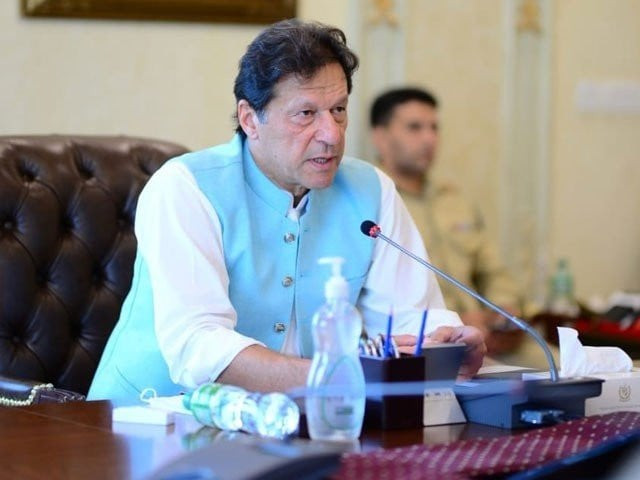PM Imran weathers the storm
The joint session was an opportunity for Prime Minister Imran Khan to prove his majority in parliament, which he did

The opposition had been putting up brave face ahead of the joint session of parliament but Wednesday belonged to the treasury.
The joint sitting passed all the required bills, including the two key ones, which deal with holding the next elections via electronic voting machines (EVMs) and allowing overseas Pakistanis the right to vote in the future elections.
The joint session was an opportunity for Prime Minister Imran Khan to prove his majority in parliament, which he did. With the support of 221 votes of his party members and that of the allies, the government cruised through the session amid the opposition’s protest.
Despite the opposition lawmakers’ speeches, urging the National Assembly Speaker Asad Qaiser to adjourn the session so that both the sides could sit together and deliberate upon the agenda items; their hue and cry; sloganeering; surrounding of speaker’s desk; tearing of the papers and heated arguments with him, the government moved ahead with the legislative business and passed 33 bills.
The opposition thought Prime Minister Imran Khan had lost the confidence of his members and the allies in the National Assembly and the Senate. However, he passed through this storm comfortably.
Last week, the government was defeated twice in the National Assembly and it had to put off the joint sitting of parliament within 24 hours of its summoning, as the allies had distanced themselves from the government.
The opposition was hoping, once again, the government would not be able to complete the numbers and would, ultimately, fail to pass the legislation for changing the voting system. They had believed that they would have the chance to stop the government just the way they did a week ago.
However, when the votes were counted, the opposition found that its seven members were absent for varying reasons – ranging from health issues to foreign visits.
The joint parliamentary session began at 1pm; an hour late, because the prime minister was busy chairing a meeting of the parliamentary committee, while the opposition leaders were visiting the speaker, reminding him that he had completely disconnected himself from the process of holding talks with the opposition on the electoral reforms.
READ Opposition to remember EVM bill ‘defeat’ for years to come: Fawad
They got the reply from the speaker during the session, when he ignored their pleas that the number of treasury votes was inflated.
The speaker was in no mood to take any advice from the opposition benches; once he was told that the treasury benches had 221 members present, he didn’t hesitate to move ahead with the agenda and even started drawing red lines for the protesting opposition parties.
At 2:46pm, the prime minister entered the hall and sat on his chair. At 3:56pm, the opposition parties staged walkout from the proceedings as they had realised by then that they could no longer oppose the legislation and their presence in the session was only giving legitimacy to the voting process.
The walkout from the opposition after there-hour-long resistance and sloganeering not only gave the government a free hand but also allowed Prime Minister Imran Khan to heave a sigh of relief.
The prime minister, who was wearing headphones to avert the noise of opposition, removed them and started meeting the lawmakers from treasury benches.
The protest had kept the treasury benches on its toes but once the opposition benches were empty, it was only a matter of reading and passing the agenda items.
The opposition glanced over the hall, hoping against the hope that the government would fail at the number game. The government, however, silenced them it with its strength.



















COMMENTS
Comments are moderated and generally will be posted if they are on-topic and not abusive.
For more information, please see our Comments FAQ